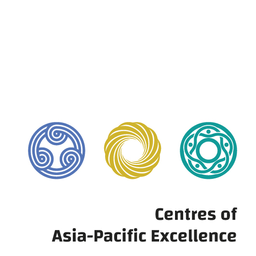Highlighting the crisis in educating about Asia in New Zealand universities
Revitalising New Zealand’s Asia expertise needs national collaboration, according to a meeting of Asia experts about cuts to Asia-focused programmes at New Zealand universities. The Context: Asia-Pacific went along to hear the concerns and potential ideas for solutions.

Asia-focused programmes, encompassing language, culture, politics, and history of the region, are among the hardest hit by Aotearoa’s much publicised tertiary education crisis. Teaching and research in Japanese, Chinese, and Asian Studies are set to be downsized, or even disestablished entirely, at the University of Otago and Victoria University of Wellington, with other universities potentially to follow.

This culmination of events and concerns that they could continue, prompted the Asia Forum to convene “The Crisis in Educating about Asia in New Zealand Universities,” in Wellington in mid-July. The Asia Forum is a discussion group which brings together members of the diplomatic, business, official and academic communities, normally to improve understanding of Asian political issues and their impact on trade and investment. Now their concern is where that understanding will come from. The forum aimed to raise awareness of the problem and brainstorm ways to put the sector on a stronger footing.

In this context, it was no wonder that a sense of deflation hung over the room. When someone mentioned the loss of community resulting from the cuts, the room audibly sighed. Yet for many in the community, the problem is not new.
New Zealand’s Asia studies and languages network has worked over the years to keep the flame alive through the vagaries of enrolment and funding trends, but now face their toughest challenge yet. Academics and other Asia experts worry that in a few years, New Zealand’s government and businesses will struggle to recruit people with Asia expertise. They fear that New Zealand may need to 'outsource’ its expertise at a time when engagement with Asia is crucial to deal with global issues such as climate change, misinformation, and a changing geopolitical environment.
Uncovering the causes
Few would disagree that New Zealand needs people who understand Asia’s regions and languages, given their economic and political importance, and the intrinsic value of understanding and connecting globally. Moreover, as emphasised at the forum, Asia-focused academic programmes are important to New Zealand's growing and diverse local Asian communities. So why is it that Asia-focused programmes are so vulnerable to budget cuts?
Drivers of the broader tertiary crisis have been well covered in the media. Lower enrolments from local and international students, government funding models, rising costs, and the complexity of managing large academic institutions, have all strained New Zealand’s universities.

Asia language and culture programmes have been among the first to feel the affects of these challenges. An immediate reason noted at the forum was a recent downturn in student numbers, thought to be related to the pandemic, and in the case of Mandarin, less enthusiasm due to geo-political developments.
The root causes, though, may be more complex. In essence, it seems that language and cultural programmes are caught up in a tertiary funding model that does not support their current state nor potential solutions.
Low enrolment numbers offer themselves up as a simple explanation. If fewer students want to learn a subject, so the argument goes, then the subject should receive less funding. However, forum attendees pointed out flaws in this assessment.
For one, it’s a given that student numbers fluctuate. Enrolments for languages like Korean, Japanese, and Chinese had even increased at some universities according to those at the meeting. But some programmes are less able to ride through the downward trends.
Low enrolment numbers were also not seen as necessarily a true picture of student interest. For example, one attendee noted that some departments’ enrolment numbers count majoring students but not students who take Asia Studies to complement other degrees, which go undercounted. Barriers such as timetable clashes hinder the participation of students who might otherwise be interested. More students may enrol in a language if ways can be found to facilitate or pique their interest.
Enrolment also depends on ‘downstream’ factors. It was suggested that fewer students are taking foreign language studies at high schools, which also face challenges such as shortages in language teachers. This suggests the challenge begins and needs to be tackled earlier on the education path.
The problem is that the business models of New Zealand’s universities involve little incentive or drive to combat these issues. The government, meanwhile, maintains a subject-neutral funding model with no room to support strategically important areas.
The crisis response's impact on Asia education
New Zealand universities have responded to the current crisis with changes that worry Asia academics. Those at the meeting see the responses as short-term fixes that, in the long-term, may compromise Asia academic expertise and further decrease student interest.
New experts will diminish as fewer students are taking fewer relevant papers, and the ones who do will be less rigorously and less comprehensively trained. The quality of research and New Zealand’s academic competitiveness will also drop compared to universities internationally that are investing more in Asia-focused research.
Many at the forum stressed that we ought to look beyond the economic and security benefits and recognise the intrinsic value of Asia Studies. The growing ethnic diversity in New Zealand gives weight to the importance of Asian languages, not as foreign languages, but as part of the country’s identity. For many New Zealanders, learning an Asian language allows them to connect with their heritage, navigate an increasingly diverse society, or develop a sense of identity and community. The loss of their own Asia Studies community was also lamented by attendees.

Finding a stronger future for Asia studies
Revitalising Asia studies in New Zealand’s tertiary sector would require a national effort, including changes to funding, programme structures, and the way the universities work together, according to the suggestions put forward at the meeting. Coordination should include academic and non-academic groups, and especially New Zealand’s various Asia diaspora communities.
Funding was top of mind, as almost all the suggestions would involve changes to the funding model. Ideas covered the full spectrum, from full public funding to increased corporate funding. The later was seen as an option to reduce reliance on the vagaries of government funding, and a realistic possibility given that many businesses strongly benefit from Asia-expertise.
At the other end of the spectrum, participants pointed to the German and French tertiary funding models, which rely heavily on public funding rather than tuition fees or corporate sponsors. Some observed that New Zealand’s tertiary system had resembled those of France and Germany until its neoliberal turn in the 1980s, when funding became tied to market-based measures.
The second pillar of discussion was the structure of Asia-focused programmes. One discussion thread was the integration of Asia studies into other programs, such as history or international relations. To some extent, this occurs already, through incorporation of Asia knowledge into other programmes. But an issue that needs resolving is, again, how to fund and develop the required expertise if it is spread diffusely throughout tertiary institutions. One suggestion was to take integration further and make language and culture papers formal or even compulsory parts of degrees, for instance requiring business degrees to include a language element.
The third pillar of discussion, perhaps the most novel and well received, was an idea to coordinate university programmes, for instance by having specialised centres, consolidating Asia studies in one place. This would carry the bonus of reducing the need for costly competitive marketing. However, achieving this would require a way to fund enrolments distributed across more than one university—which would again clash with the current funding model.
The crux of the discussion was that Asia literacy, including language and area studies expertise, are skills needed by the government, businesses, and our communities. Yet New Zealand’s tertiary institutions operate on a market-based structure of annual supply and demand. Shifting student enrolments determine long term strategic issues. In other words, if students don’t enrol in Asia Studies, whether that is reflective of their interest in the topic or not, universities will not view Asia Studies as worthwhile.
Something about this incentive structure needs to change.
Attendees suggested that the government should intervene and fund language programmes, though the complexities of this were recognised. It was considered unlikely that even government agencies that rely on Asia expertise would want to get involved. The Ministry of Education, meanwhile, maintains a stance of not directly promoting some international languages over others.
Finding roads untraveled
An easy solution with widespread support seems elusive. Multiple factors have contributed to the decline of Asia studies and language programmes, but a recurrent theme, against which various proposals bumped up against, either explicitly or implicitly, was the university funding model. Changing fundamental structural deficiencies in New Zealand’s tertiary sector seems to be an overwhelming task. However, Asia-focused programmes are crucial in equipping New Zealand with the knowledge and skills necessary for a complex and interconnected world, and so long term commitments and solutions are vital.
* The views expressed in this article do not necessarily represent the views of the Centres of Asia-Pacific Excellence.
Thanks for reading - let us know why you are here with this short three question survey!
You might also be interested in







